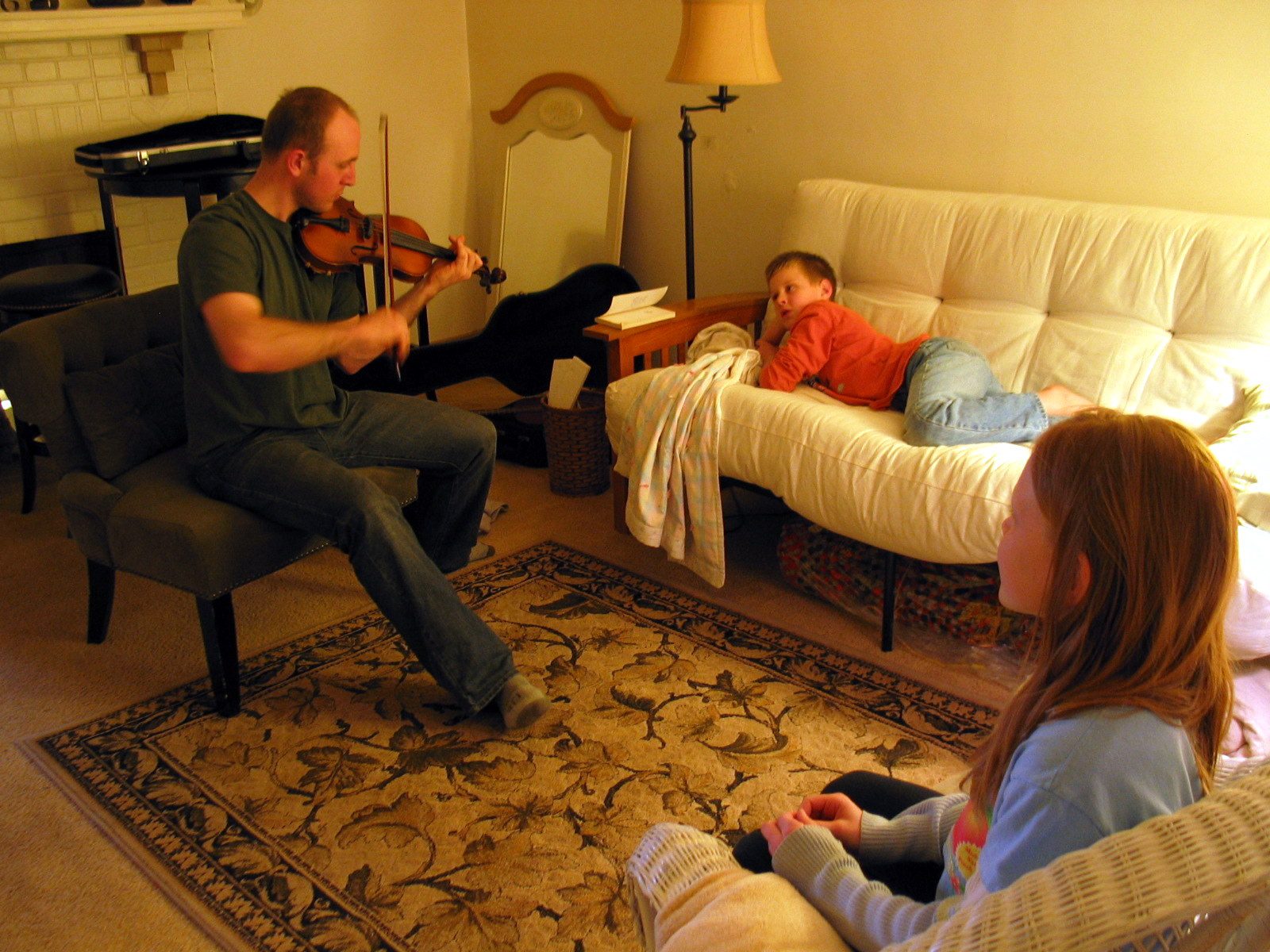How do you go about teaching religion to your children?
I never thought about that question all that much until this past week when I read about Mrs. G getting in so much trouble over just this very thing (this last link is the one you should go to first). I didn’t even bother to dig very deep into the comments or links—I simply skimmed the surface and moved on—but what I read had already set the cogs a-turning in my head. I don’t know about the rest of you, but here’s how I tend to the religious education of my kiddos.
First off, I’m no saint. (If you’re not surprised, do me a favor and pretend to be.)
Second off, (third off, fourth off, SUGAR off!) (sorry—just ate three chocolates and my mind is moving way too fast; I’m not even going to try to account for the weird stuff that it puts forth), other than church, mealtime prayers, and other religious traditions, I don’t think little kids (ages 0-6, perhaps) need to be taught about God. Kids are naturally in tune with The Divine, and I have a hunch that any teaching we direct at very young mostly stems from our own undo fear and worry. Drilling them in God talk and Bible stories, while fun and even useful sometimes, makes me feel a little dirty, like I’m exploiting the innocent. Heck, my children (and some adults, yes?) have a tendency to lump the Easter bunny, Tooth Fairy, Santa Claus, and God all in the same multi-colored, tinsel-draped, gold-encrusted cross and candy-stuffed basket. My kids will believe anything I tell them, so I try not to do so much talking and instead work on concrete things like good manners, not hitting, and learning to close their dresser drawers all the way.
That said, I think it is important to teach the bigger kids about God, and as I see it, there’s two sides to this Teach-Kids-About-God picture. There’s The Big God, the idea of God, the all-encompassing Great Spirit, Allah, Yahweh, etc, and then there is our specific slant on The Big God—in my case, the Mennonite view. I hold dear the teachings of Jesus (in particular, his peace teachings) and the Mennonite values of service, community, and shoofly, and I endeavor (some days more than others) to impart them to my children.
So in my typical eclectic, haphazard approach, we do some reading, some observing, and some talking. I introduce new (usually) age appropriate ideas, we read books, they ask questions (or, if I’m feeling particularly energetic, I ask questions of them). I say many things backwards (if not outright wrong), model an inconsistent example, and kiss them goodnight. All in all, it’s a pretty fair religious education.
How do I teach them about religion? Well, we read the Bible, thought I’m not sure this is totally wise, especially when delving into the blood-spattered Old Testament. I’ve been using a children’s Bible (complete with generic North American-centric pictures), and I’ve had to do a good bit of counter-teaching as we slaughtered our way through Joshua and Judges. More than once Yo-Yo has exploded angrily, “This God in the Old Testament is not our God! The Bible is a bad book!”
My replies are generally mild and go something like this, “Well, do you see what all the neighboring tribes were doing, sacrificing to idols and staking out their territory? The Israelites didn’t have any other example to follow. They were just like the people around them—attacking and killing was the norm—except they attached our God’s name to it. They didn’t know about Jesus yet, remember. Try to see this as a history, okay? It’s a very important history—everyone’s history is—but it doesn’t mean that this is really how God is or that God actually wants us to behave this way.”
I’m also teaching my children about other religions because I want them to have a deep respect for, and appreciation of, all different religions. Besides, I believe that we have more in common with other faiths than we generally are comfortable acknowledging.
I just finished reading a book to them about the seven main world religions and this week we started a book about Greek mythology. “Is this true? Did that really happen?” They might ask me these questions while I’m droning on about the Old Testament Ammonites, Hinduism, or Confucianism, and I just say, “Well, that’s what they believe happened.” Sometimes I add how I feel about a certain practice (especially if I think it’s a harmful one), but many times I don’t. I’m not drawing conclusions for them, but I see the wheels in their heads turning: stories to explain why something happened…the Bible…the Buddha…Boo Radley… That they think enough to ask questions thrills me to no end. This is the part of parenting and teaching that I find most invigorating and challenging.
God is huge, and the world is wide; there are so many views, perspectives, and teachings. It’s my hope that in one way or another my children can grow to appreciate and value them all. And yes, I do hope that my children grow into adults who share a deep appreciation for Jesus’ teachings (in spite of my apparent expansive views, like most people I take comfort in my particular faith, and struggle to understand how something else could be as fulfilling or morally right as my way) and who are compassionate and loving. These are my lofty goals and the above-mentioned ways are my humble means to get there … I hope.
Now for you. How do you teach your children about religion and faith? What’s your perspective on other religions? Speak to me, my peeps.
About one year ago: Breakfast Pizza.







